-
REVISÃO
Strategies for the evaluation of interventions for the control of tuberculosis: integrative review
Revista Brasileira de Enfermagem. 2019;72(5):1370-1377
09-16-2019
Abstract
REVISÃOStrategies for the evaluation of interventions for the control of tuberculosis: integrative review
Revista Brasileira de Enfermagem. 2019;72(5):1370-1377
09-16-2019DOI 10.1590/0034-7167-2017-0922
Views0See moreABSTRACT
Objective:
Identifying the available evidence in the scientific literature about the strategies used in the evaluations of interventions for the control of tuberculosis.
Method:
Integrative review with searches in databases Lilacs, CINAHL and PubMed in August 2017. Thirty-three articles were selected and the theoretical referential of health assessment was used for analysis.
Results:
The prevalent interventions were health programs (60.7%), 69.7% focusing on results and 81.9% having quantitative character (81.9%).
Final considerations:
The evaluation of interventions for the control of tuberculosis is beneficial for the health services’ users and aids in the decision making of managers and health professionals.
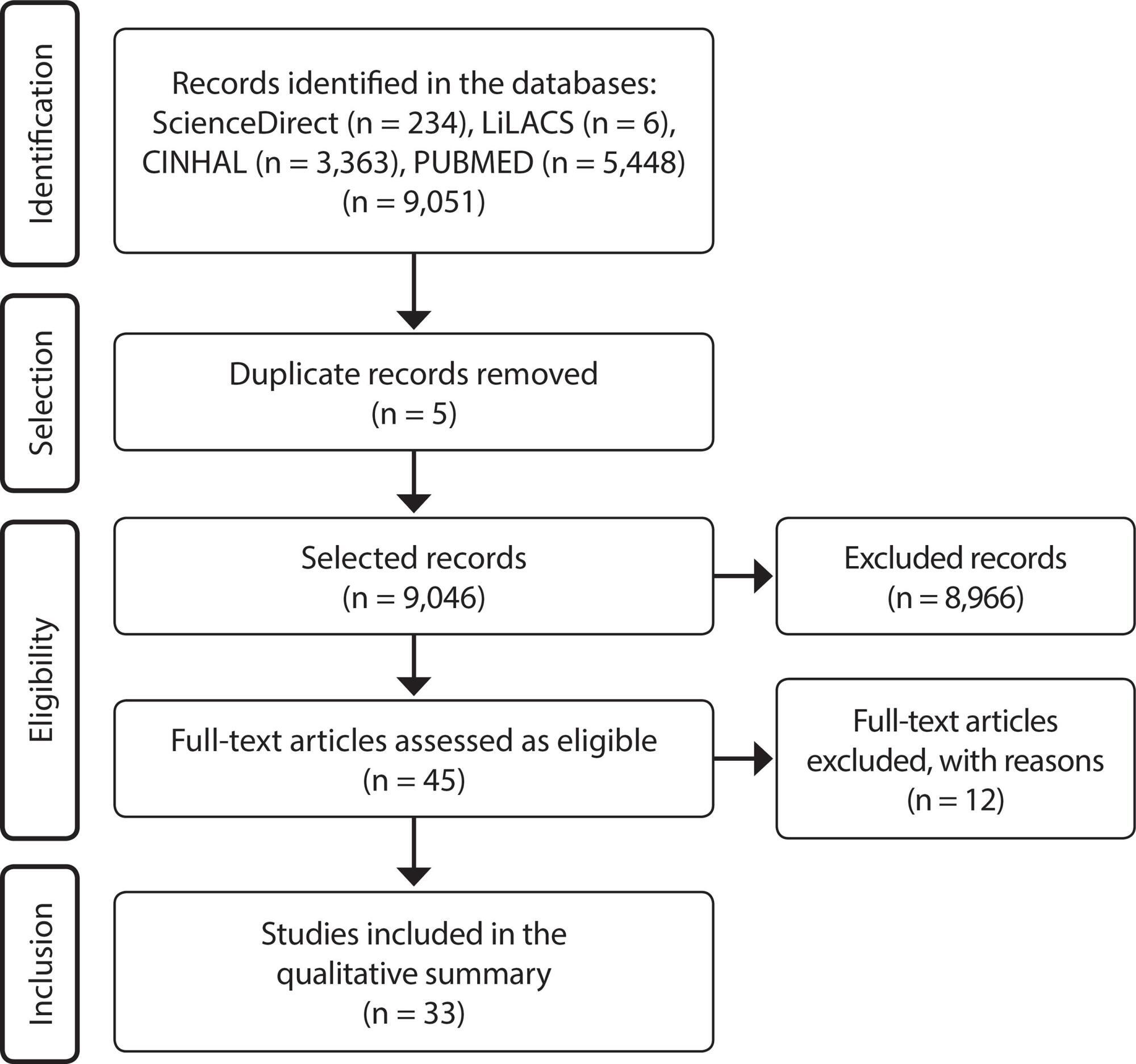
-
REVISÃO
Motherhood and HIV: reproductive desire, ambivalent feelings and a/an (not) offered care
Revista Brasileira de Enfermagem. 2019;72(5):1378-1388
09-16-2019
Abstract
REVISÃOMotherhood and HIV: reproductive desire, ambivalent feelings and a/an (not) offered care
Revista Brasileira de Enfermagem. 2019;72(5):1378-1388
09-16-2019DOI 10.1590/0034-7167-2018-0063
Views0See moreABSTRACT
Objective:
To identify in the scientific literature the feelings of women living with HIV in relation to reproduction and motherhood, as well as the care provided by health professionals regarding reproductive health as a right.
Method:
Integrative review carried out in 2017, in the databases LILACS, PUBMED, BDENF and SciELO Virtual Library. We analyzed 30 articles.
Results:
As feelings, the motivation for reproduction and self-care, fears, uncertainties and hopes were evidenced. As care, services that support reproductive decisions were evidenced, but, predominantly, the disregard for the desire and care incipience for reproductive planning.
Conclusion:
There is no comprehensive and humanized work on the reproductive issues of these women, either through the neglect of the desire and viability of gestation or by the incipient care to the ambivalent emotional experiences. There is a need to qualify the care model in order to configure it, in fact, as care, aiming at guaranteeing reproductive rights.
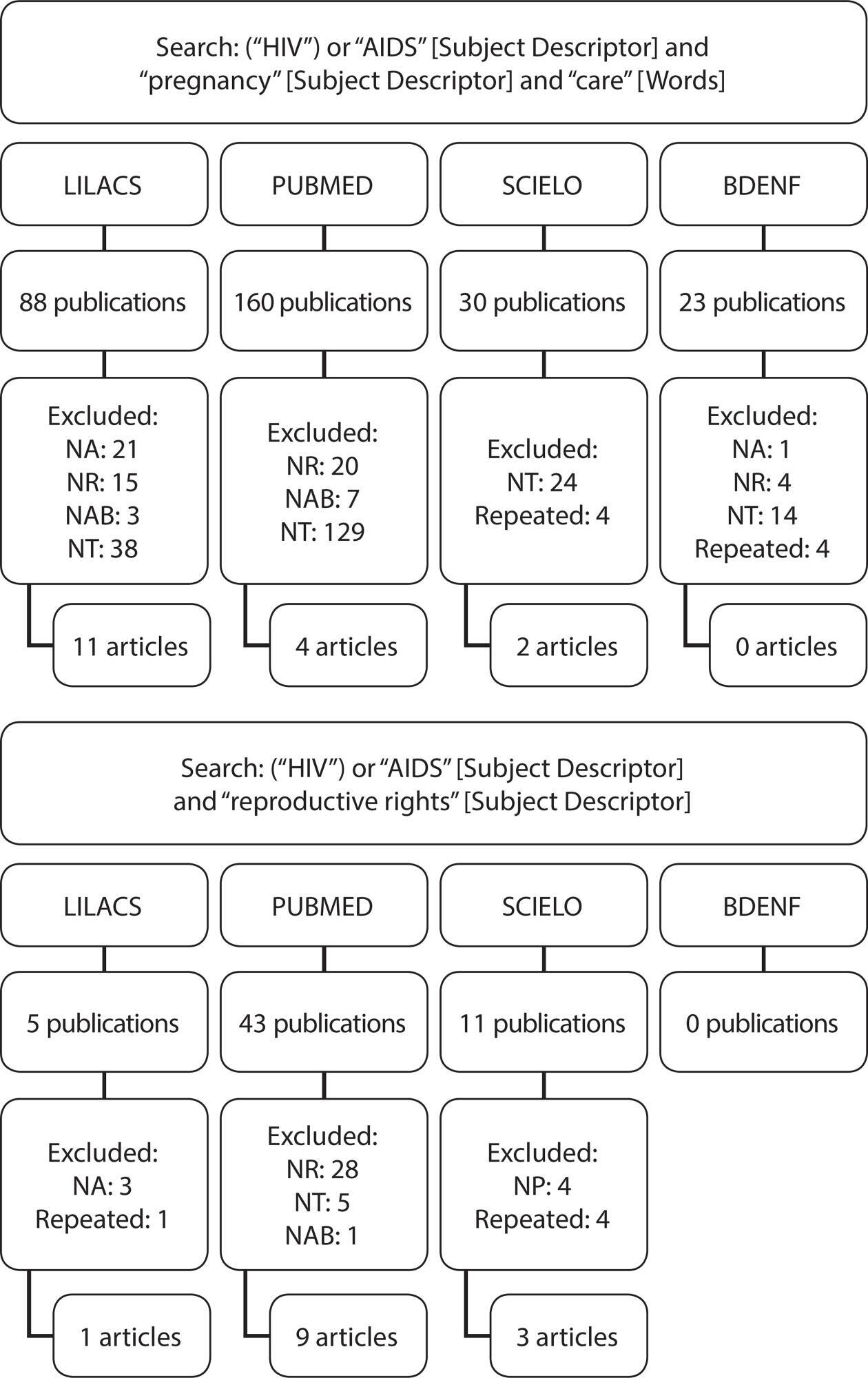
-
REVISÃO
Sociodemographic and health profile of TB/HIV co-infection in Brazil: a systematic review
Revista Brasileira de Enfermagem. 2019;72(5):1389-1396
09-16-2019
Abstract
REVISÃOSociodemographic and health profile of TB/HIV co-infection in Brazil: a systematic review
Revista Brasileira de Enfermagem. 2019;72(5):1389-1396
09-16-2019DOI 10.1590/0034-7167-2018-0285
Views0ABSTRACT
Objective:
to ascertain the epidemiological profile of TB/HIV co-infection in Brazilian scenarios.
Method:
this is a systematic review conducted via electronic search in databases PubMed, EMBASE, LILACS and SciELO, having as inclusion criterion articles based on the Brazilian scenario of TB/HIV co-infection.
Results:
of the total 174 studies, 15 were selected, revealing the epidemiological profile of the co-infection in different scenarios: male, economically active age, low education level, brown/black ethnicity, low income, heterosexual, pulmonary clinical form, alcoholism and Directly Observed Therapy.
Conclusion:
the sociodemographic and epidemiological profile of people with TB/HIV co-infection has an expected occurrence pattern, which corroborates articles found in the literature, either at national level or by grouping the studies according to region or state.
Keywords:Acquired Immunodeficiency SyndromeCo-infectionCommunity Health NursingPublic HealthTuberculosisSee more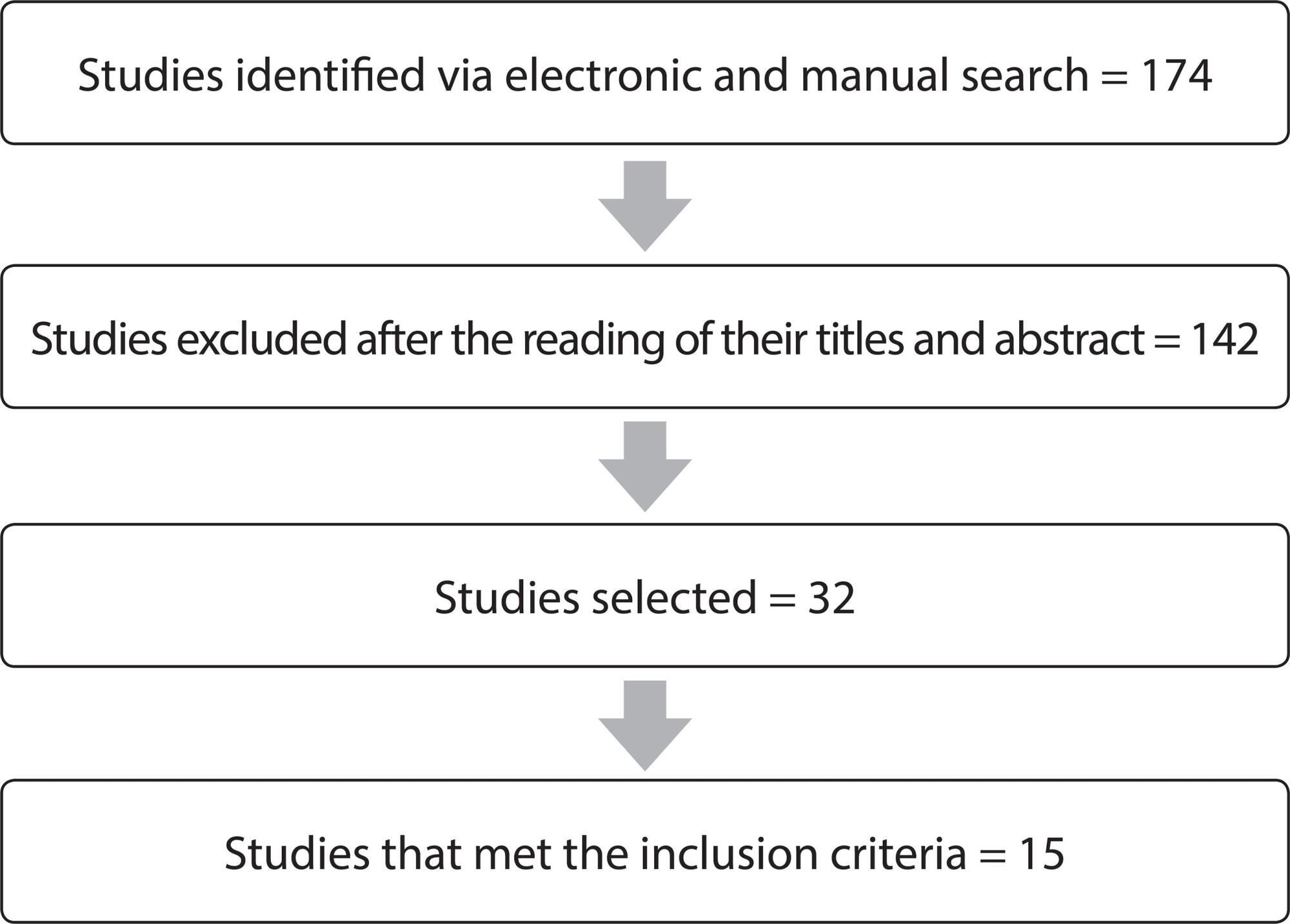
-
REVISÃO
Leprosy educational practices with adolescents: an integrative literature review
Revista Brasileira de Enfermagem. 2019;72(5):1397-1404
09-16-2019
Abstract
REVISÃOLeprosy educational practices with adolescents: an integrative literature review
Revista Brasileira de Enfermagem. 2019;72(5):1397-1404
09-16-2019DOI 10.1590/0034-7167-2017-0458
Views0See moreABSTRACT
Objectives:
to identify scientific evidence in the literature regarding educational actions on leprosy developed with adolescents.
Method:
an integrative review of the literature, with the following research question: what are the leprosy educational practices currently being developed with adolescents? The search was performed in the following databases: MEDLINE, Scopus, LILACS, CINAHL, BVS Hanseníase and other sources, using “adolescent”; “leprosy”; “health education”; “public health”, and “public health practice” as keywords. Results: the sample was comprised of nine studies. Leprosy educational practices with adolescents verifiably promote change in knowledge when they are based on constructivist methodologies. The nurse is recognized as a professional with potential for developing these educational practices. Final considerations: actions for leprosy education with adolescents do lead to changes in knowledge, but new research is needed to evaluate their effectiveness in further improving this knowledge as well as changing behaviors and practices.

-
REVISÃO
Socioeconomic factors related to leprosy: an integrative literature review
Revista Brasileira de Enfermagem. 2019;72(5):1405-1415
09-16-2019
Abstract
REVISÃOSocioeconomic factors related to leprosy: an integrative literature review
Revista Brasileira de Enfermagem. 2019;72(5):1405-1415
09-16-2019DOI 10.1590/0034-7167-2017-0651
Views0See moreABSTRACT
Objective:
To investigate in the literature the relation of socioeconomic factors in the incidence of the disease and other outcomes related to leprosy.
Method:
Integrative review conducted in Lilacs, Medline, Scopus databases and SciELO online library with studies from 2000 to 2016.
Results:
32 studies were included. Only studies that analyzed statistical associations of socioeconomic factors and outcomes related to leprosy were selected.
Conclusion:
Leprosy is greatly affected by the social context in which the patient is inserted, the chances of exposure to illness are the result of a set of not only individual aspects, but also of contexts or collective conditions. It is imperative for Nursing, as an essential part of the multiprofessional team entrusted with the care and surveillance of the disease, to recognize these factors to predict unfavorable outcomes and to develop new practices capable of reducing inequities.

-
REVISÃO
Institutional strategies to prevent violence in nursing work: an integrative review
Revista Brasileira de Enfermagem. 2019;72(4):1052-1060
08-19-2019
Abstract
REVISÃOInstitutional strategies to prevent violence in nursing work: an integrative review
Revista Brasileira de Enfermagem. 2019;72(4):1052-1060
08-19-2019DOI 10.1590/0034-7167-2018-0687
Views0See moreABSTRACT
Objective:
To analyze the production of research that adopted as object of investigation: institutional strategies, actions and programs to curb and/or prevent the nursing workplace violence.
Method:
Integrative review of 14 articles in full, available in the databases LILACS, PubMed Central, Scopus, CINAHL and Web of Science.
Results:
Of the articles analyzed, most arise from quantitative research (71%), carried out in the United States (65%), with educational actions (57%) and programs (43%), denoting policies.
Conclusion:
Results showed various ways to curb or prevent nursing workplace violence. These are specific strategies, there are few programs deployed worldwide, usually centered in the United States, Canada and Sweden. Most of them is well evaluated and can serve as a model for the development and dissemination of policies according to the needs of each location.
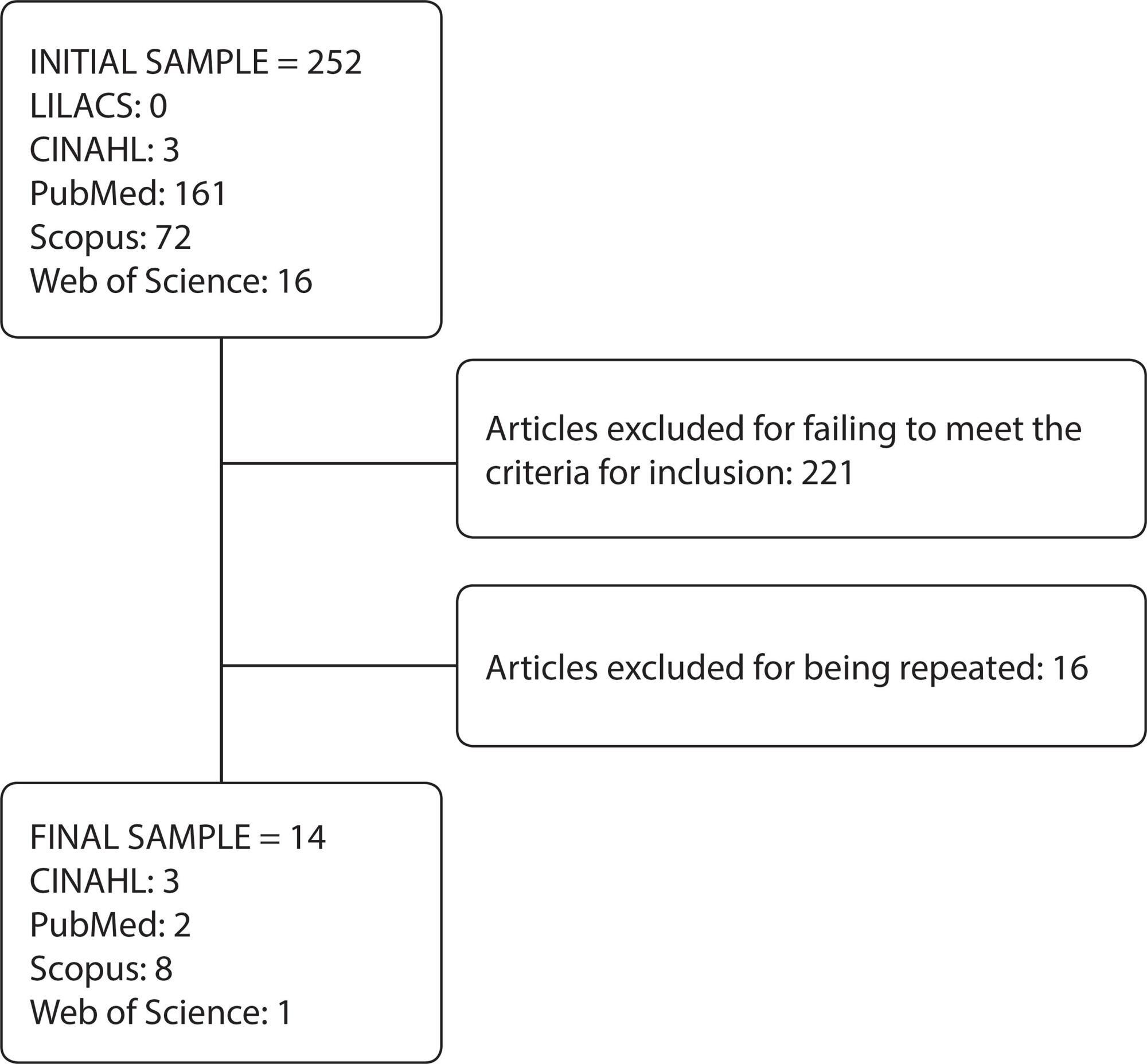
-
REVISÃO
Clinical simulation in nursing education in intensive therapy: an integrative review
Revista Brasileira de Enfermagem. 2019;72(4):1061-1070
08-19-2019
Abstract
REVISÃOClinical simulation in nursing education in intensive therapy: an integrative review
Revista Brasileira de Enfermagem. 2019;72(4):1061-1070
08-19-2019DOI 10.1590/0034-7167-2018-0217
Views0See moreABSTRACT
Objective:
to analyze the publications on clinical simulation practices for education in Nursing in Intensive Care.
Method:
an integrative review carried out through LILACS, PubMed, Cochrane Library, CINAHL and SciELO databases, of articles published from 2008 to 2017.
Results:
29 articles were selected, of which 76% discuss the use of simulation in continuing education of nursing professionals, while the others describe their use for student education. There is a higher prevalence of studies with a level of evidence 6 (17), with 28 international publications. There was an increase in scientific production, with 16 articles published in the last three years.
Conclusion:
variables after simulation use, such as confidence, communication skills, efficiency in the identification of clinical worsening of patients, development of technical skills, teamwork and clinical decision-making, presented a significant improvement, demonstrating that this tool is effective in qualifying care for critical patients.
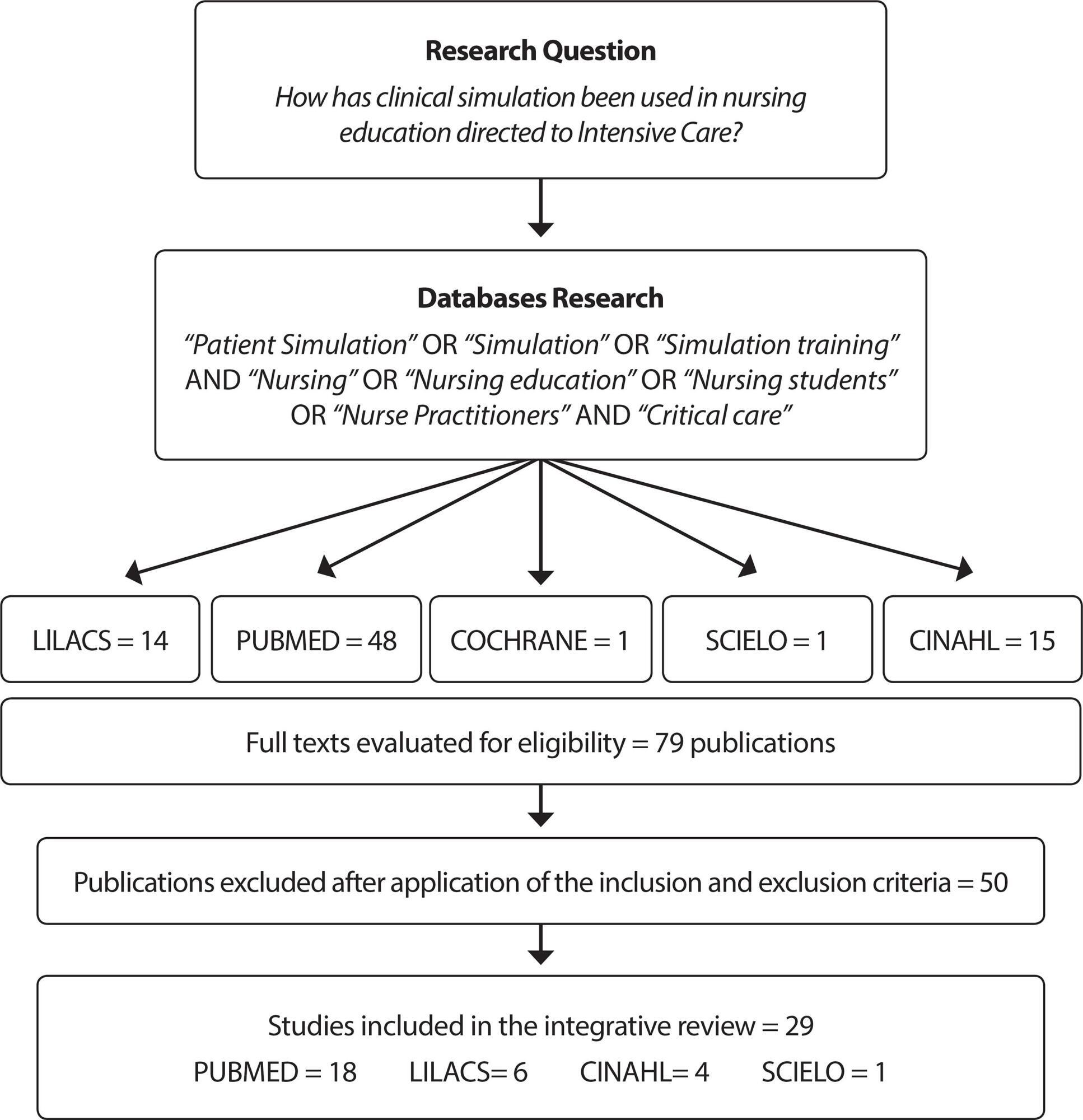
-
REVISÃO
Degree in Nursing: education through problem-based learning
Revista Brasileira de Enfermagem. 2019;72(4):1071-1077
08-19-2019
Abstract
REVISÃODegree in Nursing: education through problem-based learning
Revista Brasileira de Enfermagem. 2019;72(4):1071-1077
08-19-2019DOI 10.1590/0034-7167-2018-0298
Views0See moreABSTRACT
Objective:
To describe how undergraduate courses in Nursing are using the problem-based learning (PBL).
Method:
Integrative literature review, from searches in the databases Education Resources Information Center (ERIC), Latin American and Caribbean Health Sciences Literature (Lilacs), and PubMed, from 2010 to 2015. 36 articles were analyzed.
Results:
A teaching method used in all continents, the PBL enables improvement of the critical thinking, autonomy, motivation for learning, active search attitude, ability to work in teams, and problem-solving. Difficulties and challenges relate to the training of students and teachers to understand the principles of the method.
Final considerations:
The benefits of PBL coincide with the needs of nursing training, but its applicability demands constant review in seeking to develop the skills necessary for this training.




